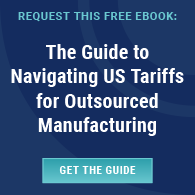Tariffs are taxes or duties imposed by a government on imported goods. They are used for a variety of reasons, from protecting domestic industries to raising revenue. Here’s a closer look at the pros and cons of tariffs:
Pros
- Protects Domestic Industries: Tariffs can protect local businesses and jobs by making imported goods more expensive, encouraging consumers to buy domestic products instead.
- Increases Government Revenue: Tariffs generate revenue for the government, which can be used for public projects or reducing national debt.
- Promotes Economic Independence: By protecting domestic industries, tariffs can help a country become more self-sufficient and reduce reliance on foreign goods, which can be especially beneficial in strategic sectors like energy, technology, or agriculture.
- Encourages Domestic Investment: When foreign goods are more expensive due to tariffs, investors may be more inclined to invest in local industries, potentially boosting innovation and economic growth domestically.
- Reduces Trade Deficits: Tariffs can help reduce a trade deficit by decreasing the volume of imports and increasing demand for locally produced goods.
Cons
- Higher Prices for Consumers: Tariffs usually increase the price of imported goods, which can lead to higher prices for consumers. This can reduce purchasing power, especially if there are no domestic alternatives.
- Retaliation from Other Countries: Other countries may impose their own tariffs in response, leading to a trade war that can harm exporters, reduce market access, and damage international relationships.
- Reduced Variety of Products: Tariffs may limit the variety of products available to consumers, as imports become less competitive or entirely unfeasible due to increased costs.
- Inefficiency in Domestic Industries: If domestic companies are protected from foreign competition, they may have less incentive to innovate or improve efficiency, potentially leading to lower quality products over time.
- Negative Impact on Global Supply Chains: Tariffs can disrupt supply chains by making it more expensive to import necessary components or raw materials, which can harm businesses reliant on international sourcing. Also, it can reduce or eliminate access to a qualified and sizable labor force.
Altraco’s experience with navigating tariffs during the past 40 years and countless tariff changes can help you move your production to other countries such as Mexico, India, or Vietnam (to name a few options). Contact us today for a zero obligation evaluation.

Al is an entrepreneur, founder, and owner of multiple businesses, including Altraco, an outsourcing and contract manufacturing company. Working across multiple continents and trusted by Fortune 500 companies, Al finds innovative solutions to traditional supply chain challenges. He is a member of Vistage Worldwide.


